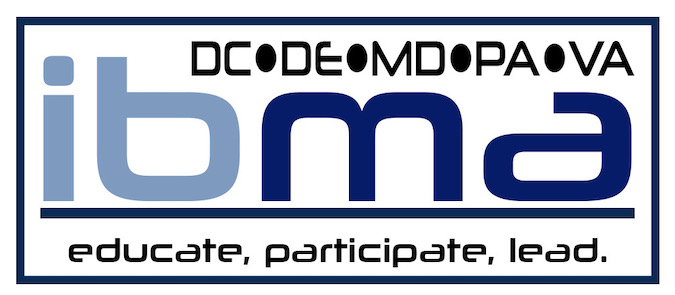|

Diploma Coordinators in IBMA schools have contributed ideas of "best practices in the following
IB areas to share with other schools.
-
- General Extended Essay Tips (for students and advisors)
- It is suggested that an Extended Essay Supervisor be selected to
coordinate the entire process and meet with students to monitor their
progress. In some schools the EE coordinator is the ToK teacher.
- An orientation to the extended essay procedure is rendered to
students and parents. In many cases, a manual is given to students
which outlines the guidelines.
- An orientation is rendered for mentors.
- An extended essay time-line is developed which usually extends from 6
months to a year. Each stage represents a development in the paper,
i.e. selection of a mentor, subject, and thesis statement; development
of a bibliography; note cards; an outline; a rough draft; the final
draft. The extended essay process usually begins with the junior year.
The final deadline in schools ranges from September to December of the
senior year.
- Many schools have a class where some time is devoted to managing the
extended essay. Ex. Use the ToK extra 50 hours if the class has 150
hours allocated in the schedule to discuss thesis ideas, do research in
the library, work in the computer lab.
-
- Designate a CAS coordinator who will have time to meet with students
and make suggestions for CAS projects.
- Develop a CAS manual.
- Sponsor an orientation for the students and parents at the end of the
sophomore year.
- Make sure that students have easy access to forms.
- Have students create a CAS portfolio or journal.
- Develop CAS projects for participation by all IB students.
- Develop international CAS projects.
- Complete documentation in a seminar forum while sharing experiences.
-
- Develop a two-year timeline of due dates for curriculum.
- Make sure that the teachers have the copies of the pertinent forms
from the Vade Mecum at the beginning of the school year.
- Make sure that the candidates know the requirements and are equipped
with the rubrics, etc.
- Make sure that the parents are a part of the team and know what is
required and when.
- Have the teachers collect the internal assessment according to the
timeline and award the internal assessment grade at that time.
- Develop measures to address the delinquent projects/papers.
- Require that all work be turned in in duplicates.
- Mail the IAs at least two weeks before the IBCA deadline.
-
Several methods are used with varied results.
-
- Create an examination calendar early in the school year which
addresses the exams specific to your school and any conflicts with other
standardized exams.
- Register students for examinations.by November.
- Invoice families for those portions which your school division has
established that they will pay.
- Make sure that student choices match their diploma restrictions.
- Choose a location and determine how many invigilators you will need.
- In choosing your location, make sure that optimal testing conditions
are available. Some coordinators reserve locations away from the school
building. Contacts:
- Invigilators can be parents, teachers, retired teachers, counselors,
etc.
- Make certain that the invigilators reserve the dates in May on their
calendars.
- A month before exam season, arrange for an invigilator orientation.
-
- Many schools coordinate staff meetings which include all teachers
from Pre-IB as well as IB to nurture the team work philosophy.
- Staff meetings can be held before school, during common planning
periods, or after school
- Some schools have staff meetings once per month. Not only are
program updates discussed, but also curriculum development, vertical
articulation, interdisciplinary articulation, child studies, team
planning, and best practices.
- Some hold formal meetings infrequently and prefer to communicate by
email or a teacher newsletter.
-
The MARC schools have an account with Turnitin.com, a website which
assists with thwarting plagiarism.
-
-
In some schools, students sign an honor code each year.
-
Students are expected to follow the school policy on cheating and
are punished for infractions accordingly.
-
At the first infraction students receive a warning and with the
second, they are de-selected from the program.
-
In some schools, teachers are required to verify that all papers
have been submitted to Turnitin.com.
-
In some schools, students are required to turn a disk in or a
receipt from Turnitin.com with the hard copy of the paper.
-
- A recognition banquet
- Medallion worn at graduation
- Honor stoles/ropes worn at graduation
- Acknowledgement in the graduation program
-
- Recognition at the school board
- An assembly held at Thanksgiving or right after the winter break
- Media recognition
- Evening reception
-
- Orientations held for parents and students
- Hand outs distributed
- Applications distributed
- Teachers or Counselors recommend students
- Students who have selected to enroll in the IB are congratulated and
given pins by the seniors and an invitation to an evening orientation
and reception.
-
- Mentor programs established
- Tutoring offered by teachers, neighboring college students, other IB
students, the Honor Society
- Required after school sessions
- Study skill sessions held
- Required study groups established
-
- IB techniques are employed with non IB classes
- Students are successful on other standardized tests
- More athletes have better grades
- More students attend college
- More scholarships are obtained.
- Scheduling is difficult because of the high number of singletons.
|


